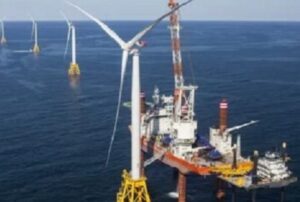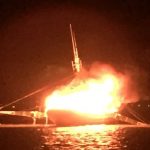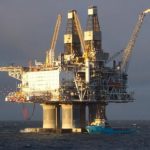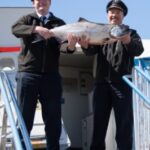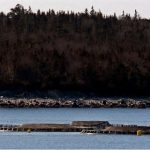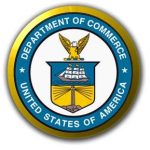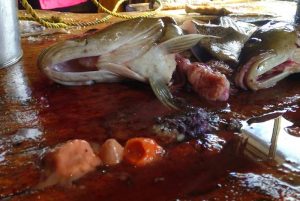Tag Archives: chemicals
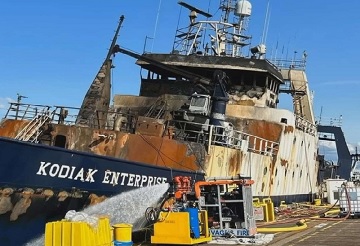
F/V Kodiak Enterprise: Crews removing water, chemicals from Tacoma fishing boat before investigating cause of fire
Crews extinguished the last of the fires Friday but investigators who will look for the cause still aren’t able to set foot on the boat. Officials said a few things need to happen first, like the removal of the gas, oil, and water still on the vessel. “Right now, the biggest priority is dewatering the vessel to right it, ” said U.S. Coast Guard Petty Officer Steve Strohmaier. The 276-foot Kodiak Enterprise still lists to one side. It’s because of the water poured into the boat to put out the flames. Getting that water and other potentially damaging chemicals off the boat is the new priority. >click to read< 07:29
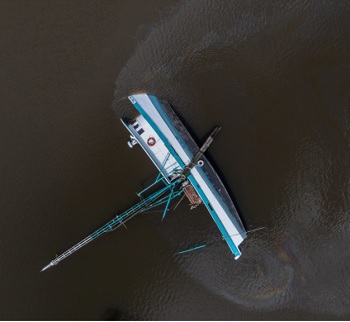
Hurricane Ida: Leaves Toxic Chemicals, Oil Spills, And Sewage Swirling In Her Wake
Days after the storm swept through the region, the environmental aftermath is emerging in a petrochemical corridor packed with hazardous-chemical plants and refineries. In some areas, the chemicals are mixing with raw sewage released from treatment plants that lost power.,, Nearly 100 spills and other episodes have been reported to the Louisiana Department of Environmental Quality as of Thursday afternoon, raising concerns among environmentalists and public health officials about toxic discharges. >click to read< 10:47
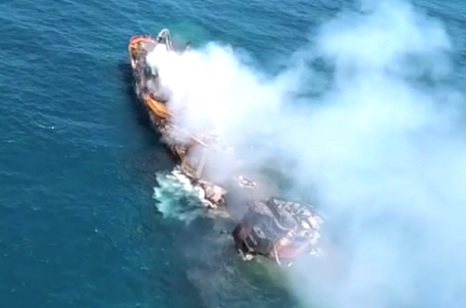
Sri Lanka: Plastic, chemicals and a devastating environmental hit for commercial fishermen and their communities
The X-Press Pearl is lying half sunken off the coast of Sri Lanka. Images of the ship burning for days have gone around the world,,, Tons of tiny plastic pellets have already washed up on the local beach nearby. Aside from the environmental threats, there are also devastating consequences for the 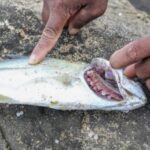 local communities, fishermen who overnight lost their livelihoods and will likely suffer for years to come. Plastic pellets, also called nurdles, are tiny round pieces of plastic, used to make nearly all plastic goods. They will wash up on beaches or end up in the guts of fish and other ocean animals. “More hazardous than the plastic are the chemicals,” >Video, photos, click to read< 14:35
local communities, fishermen who overnight lost their livelihoods and will likely suffer for years to come. Plastic pellets, also called nurdles, are tiny round pieces of plastic, used to make nearly all plastic goods. They will wash up on beaches or end up in the guts of fish and other ocean animals. “More hazardous than the plastic are the chemicals,” >Video, photos, click to read< 14:35
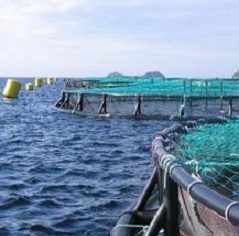
A history of toxic chemicals in the fish farming industry
When fish farms first appeared on the coast in the late 1970s, they seemed like an interesting idea. They could provide food, meet consumer demand, and perhaps alleviate the stress on wild stocks.,, Atlantic salmon and Norwegian owners became the new face of fish farms. The salmon are densely packed into the net pens, moving among their own faeces, fish pellets, and chemicals that are regularly dumped into the pens to deter the prevalent bacteria and sea lice that these conditions give rise to.,, “Many of the pesticides, insecticides and fungicides used by salmon farmers are derived from the Second World War’s chemical weapons programs,” writes Don Staniford in A Stain upon the Sea. These chemicals, used internationally, have poisoned the land via commercial agriculture, but were never intended to be dumped into the sea via aquaculture. >click to read< 09’10

NO SUCH THING AS FREE LOBSTER
EU Trade Commissioner Cecilia Malmström last week rejected a request from her U.S. counterpart Robert Lighthizer for a mini trade deal. The agreement, which was to be struck ahead of a deadline for U.S. President Donald Trump to impose tariffs on European cars this Wednesday, would have cut duty on American lobsters and chemicals, according to a letter from Malmström to Lighthizer obtained by POLITICO’s Jakob Hanke. >click to read< 09:32
Fish becoming transgender from contraceptive pill, chemicals being flushed down household drains
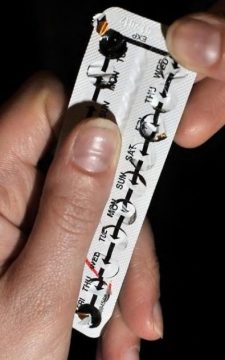 A fifth of male fish are now transgender because of chemicals from the contraceptive pill being flushed down household drains, a study by has suggested. Male river fish are displaying feminised traits and even producing eggs, the study found. The chemicals causing these effects include ingredients in the contraceptive pill, by-products of cleaning agents, plastics and cosmetics, according to the findings. More than 200 chemicals from sewage plants have been identified with oestrogen-like effects and drugs such as antidepressants are also altering fish’s natural behaviour, his study found. “Other research has shown that many other chemicals that are discharged through sewage treatment works can affect fish, including antidepressant drugs that reduce the natural shyness of some fish species, including the way they react to predators,” Professor Tyler said. click here to read the story 19:55
A fifth of male fish are now transgender because of chemicals from the contraceptive pill being flushed down household drains, a study by has suggested. Male river fish are displaying feminised traits and even producing eggs, the study found. The chemicals causing these effects include ingredients in the contraceptive pill, by-products of cleaning agents, plastics and cosmetics, according to the findings. More than 200 chemicals from sewage plants have been identified with oestrogen-like effects and drugs such as antidepressants are also altering fish’s natural behaviour, his study found. “Other research has shown that many other chemicals that are discharged through sewage treatment works can affect fish, including antidepressant drugs that reduce the natural shyness of some fish species, including the way they react to predators,” Professor Tyler said. click here to read the story 19:55
Bloody, red Cod Livers has Long Harbour fisherman suspicious of nearby Vale Smelter operation
 Andy Murphy of Long Harbour said last spring he was finding herring with bloody red-coloured innards, something he insists is a result of Vale’s smelter operations in the town. Now, Murphy said he is finding cod with the same discolouration and wonders if chemicals are being pumped out near the shore by Vale and contaminating the fish. “I noticed the livers are really dark red,” he said. “Some of them are green and red, more are white and red, and I’ve never noticed that before. Plenty of people noticed it during the food fishery.” Read the rest here 08:02
Andy Murphy of Long Harbour said last spring he was finding herring with bloody red-coloured innards, something he insists is a result of Vale’s smelter operations in the town. Now, Murphy said he is finding cod with the same discolouration and wonders if chemicals are being pumped out near the shore by Vale and contaminating the fish. “I noticed the livers are really dark red,” he said. “Some of them are green and red, more are white and red, and I’ve never noticed that before. Plenty of people noticed it during the food fishery.” Read the rest here 08:02

































